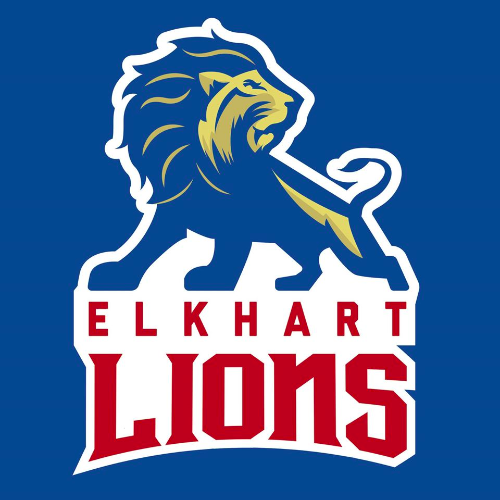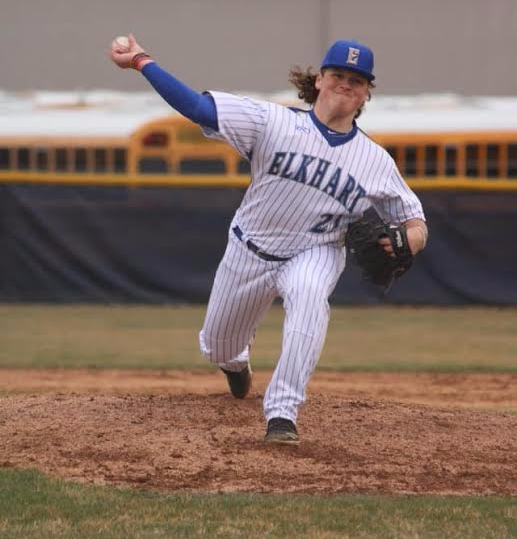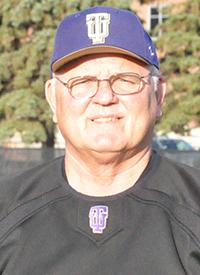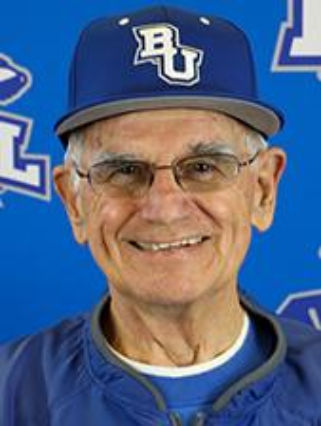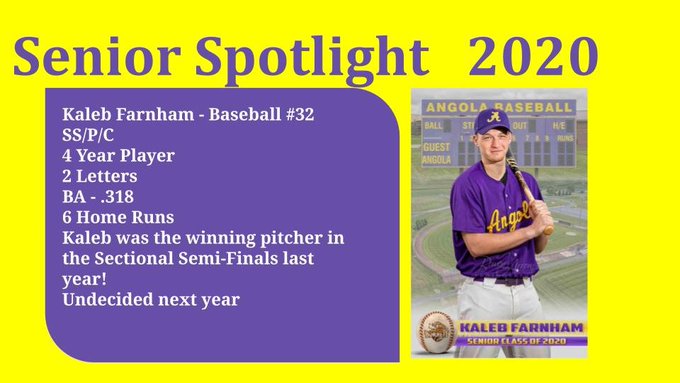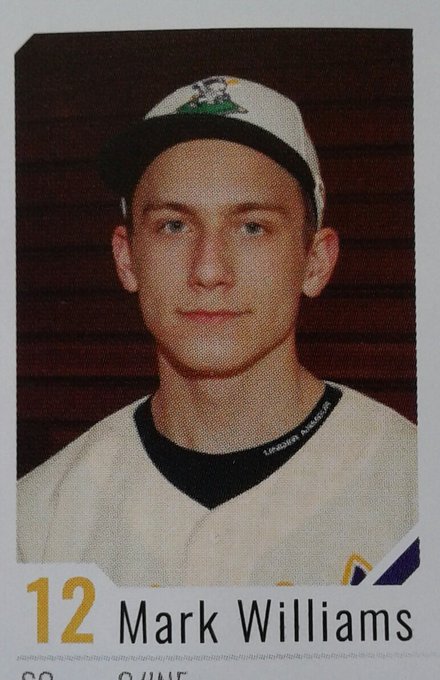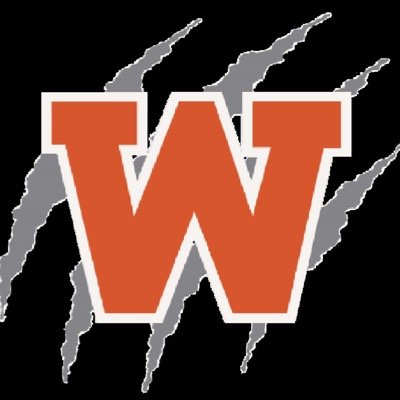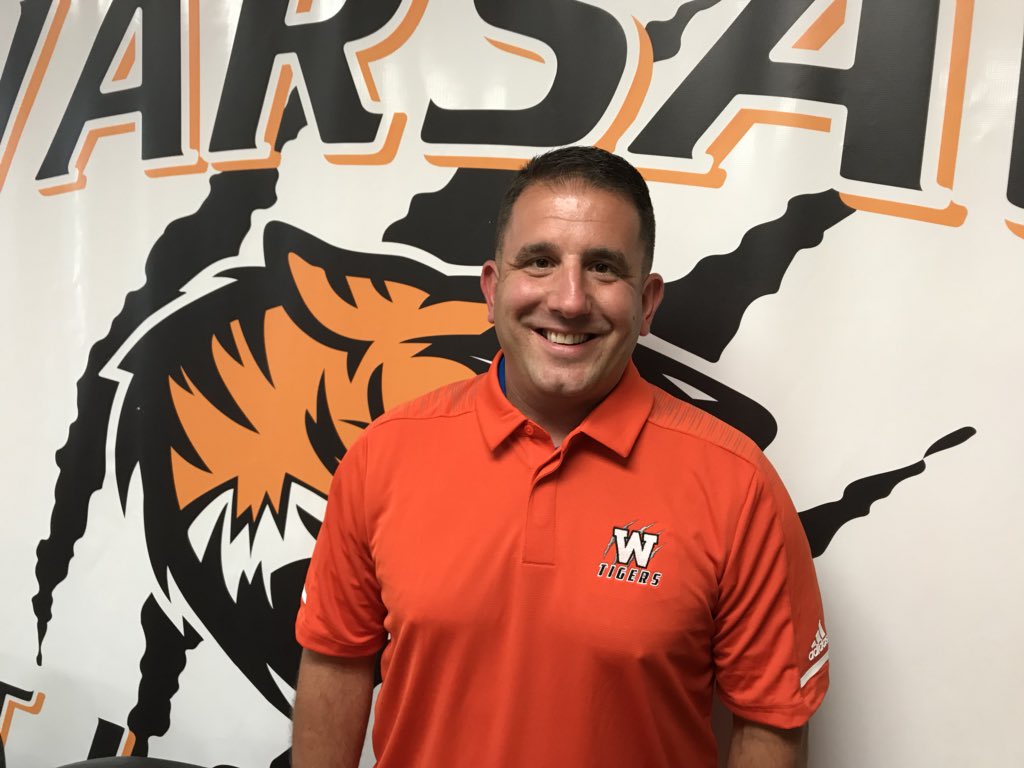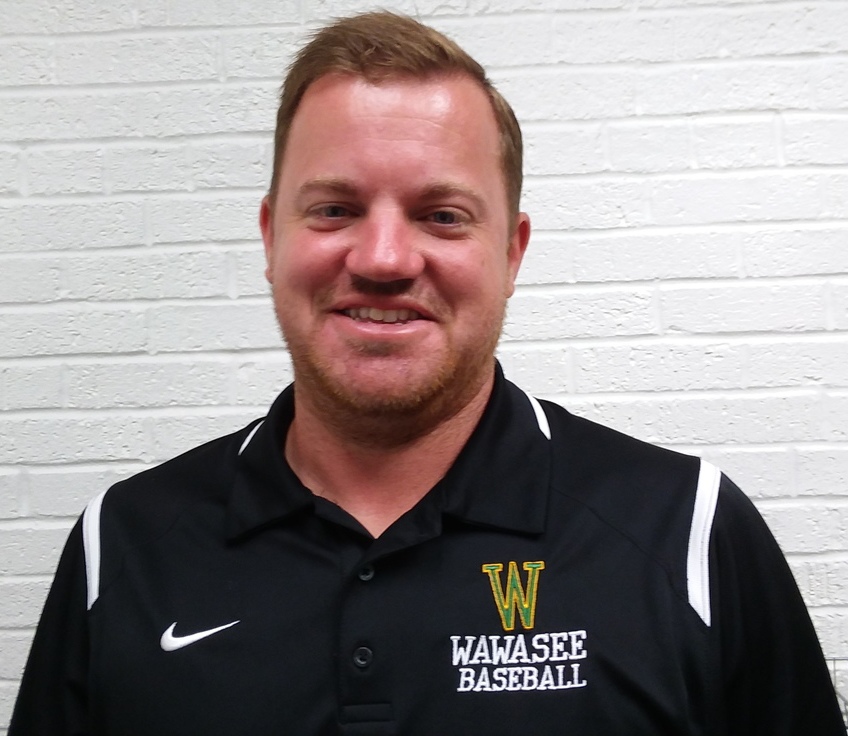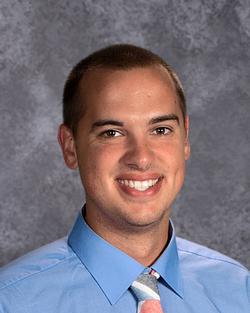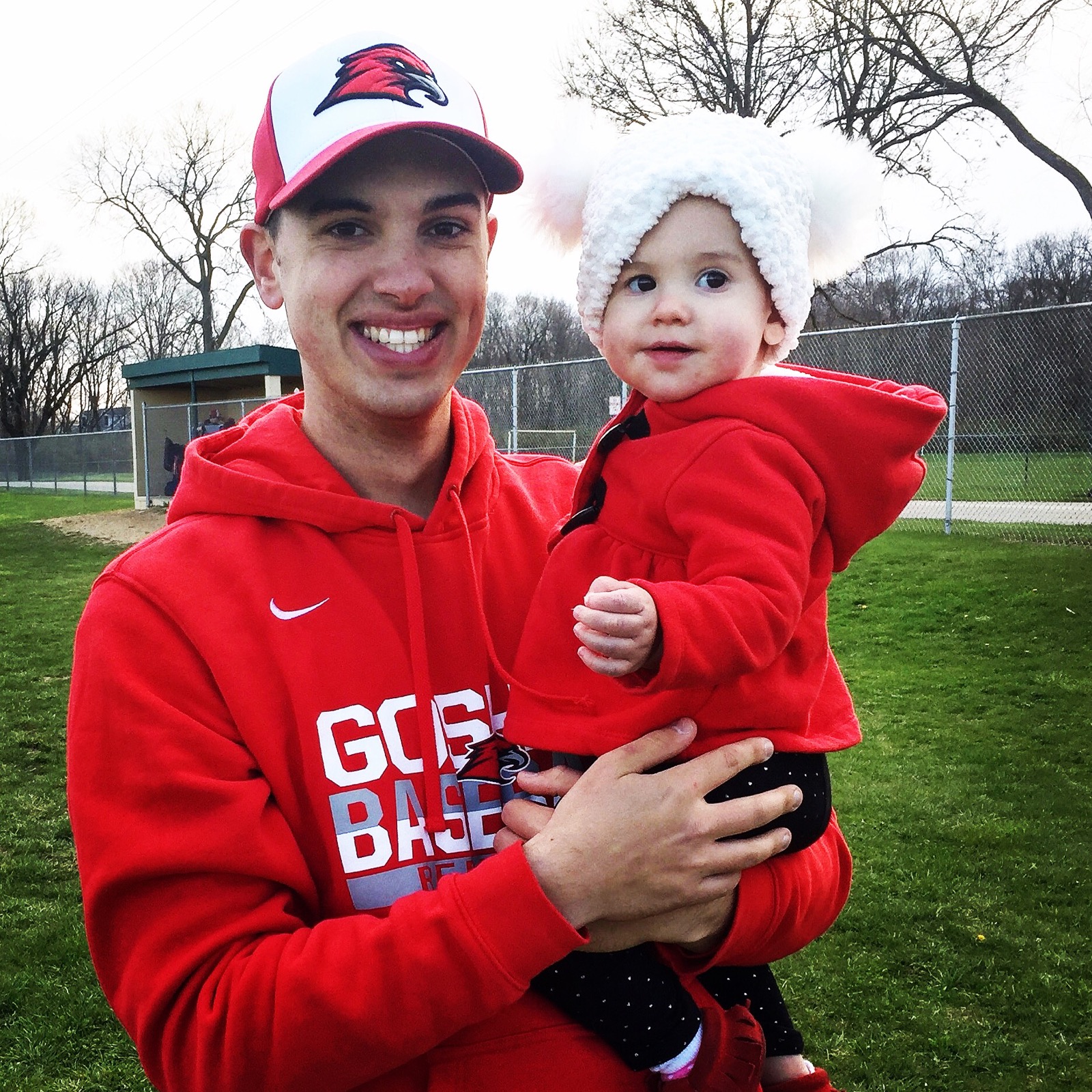
By STEVE KRAH
http://www.IndianaRBI.com
Has it really been a generation since Indiana widely adopted high school class sports?
Of course there were classes in football going back to the 1970s, but check the records and you will find that 1996-97 (when Jasper outlasted Carmel 10-8 for the IHSAA baseball championship) was the last year that other sports were in the all-comers category at state tournament time.
With the COVID-19 pandemic taking away the 2020 spring season, that makes 2023 the 25th year of class baseball in the Hoosier State.
In the multi-class era, 56 different schools have won state baseball championships.
Of that number, only Jasper, LaPorte and Penn earned titles prior to 1997-98.
There are 22 schools with multiple state runner-up finishes. That accounts for 60 red ribbons — all but 12 coming from 1997-98 forward.
Noting that some schools came about in recent years because of consolidation, unification or other reasons, those that won their first sectional championship during the multi-class era include 4A’s Elkhart (2021), Evansville Harrison (1999), Fishers (2017), Fort Wayne South Side (2012) and Michigan City (2002), 3A’s Angola (1999), Charlestown (1999) and Hamilton Heights (2006), 2A’s Austin (2002), Central Noble (2009), Clinton Central (2005), Covenant Christian of Indianapolis (2008), Delphi (2008), Fairfield (1998), Hanover Central (2011), Heritage Christian (2005), Illiana Christian (2022), Lewis Cass (2000), North Decatur (2011), Parke Heritage (2021), Sheridan (2004), South Knox (2004), Southwestern of Hanover (1999), Southwood (1999), Taylor (1998), Triton Central (2003), Whitko (2017) and Woodlan (2005) and 1A’s Argos (1998), Bethesda Christian (2008), Caston (2012), Christian Academy of Indiana (2004), Cowan (2004), Daleville (1999), Edinburgh (2009), Elkhart Christian (2013), Eminence (2005), Fort Wayne Blackhawk Christian (2001), Fort Wayne Canterbury (2009), Greenwood Christian (2014), Hauser (2004), Henryville (1999), Indianapolis Lutheran (2017), Kouts (1998), Marquette Catholic (2002), Milan (1999), Monroe Central (2001), Morgan Township (2004), Morristown (1998), New Washington (1998), Northeast Dubois (1998), North Miami (2019), Oldenburg Academy (2003), Park Tudor (1998), Pioneer (2016), Randolph Southern (2010), Rising Sun (2002), Seton Catholic (2011), South Central of Elizabeth (2005), Southwestern of Shelbyville (1999), Tecumseh (2000), Traders Point Christian (2021), Trinity Lutheran (2009), Triton (2000), Washington Township (1999), Union City (2012), University (2012), Waldron (2001), West Washington (2021), White River Valley (2017) and Whiting (2008).
A quarter century in, there are still plenty of opinions in the Indiana high school baseball community about the system.
These questions were posed to several coaches around Indiana:
- Is class baseball a positive or a negative?
- Who benefits the most from class baseball?
- If you could change anything about class baseball what would that be?
- Anything else you’d like to say on the subject?
Some of the responses:
“(Class baseball) is a positive. It has allowed schools of all sizes to be recognized and have some success at the state level while increasing fan interest in our sport. The players and the communities truly benefit the most from class baseball, in my opinion.
“The IHSAA does a great job of administering the state tournament and ending each year at Victory Field allows our sport to be showcased on a big stage! However, the tournament format itself needs to be addressed, especially at the sectional level, and we can’t continue in a ‘one size fits all’ cookie-cutter format. Our sport is different than others and our tournament format needs to reflect that. Seeding, success factor, and travel also need to be looked at in light of the fact(s) that class sports are here to stay and there are geographical constraints/factors based on the location of the school(s).
“Baseball in general is changing for the better in Indiana … the IHSBCA and the IHSAA need to continue to work together on formats/philosophies/participation guidelines that foster growth in our sport and develop a mutual relationship where everyone’s input is valued. We, the IHSBCA, have several ideas to share about the state tournament format/setup and how we can better grow our sport, in general. We are all stronger when we are working together and my goal as the Executive Director is to help facilitate positive changes that will grow our sport and unify our coaches at the same time.”
DAN AMBROSE (Heritage Christian head coach)
“(Class baseball) is a positive.
“I assume that smaller schools are more likely to benefit so they play teams that are more competitive.
“I would support adding a fifth ‘super class’ of the largest schools and then balance the rest of the four classes.”
PATRICK ANTONE (Former Boone Grove and Columbus North and current Roncalli head coach)
“Class baseball is definitely a positive thing. It levels the playing field for teams when it comes to player depth and facilities.
“For example, a school with an enrollment of 2,200 has a lot more players to work with and pull from than a school with an enrollment of 300. Both teams can be good and have good players, but the bigger school is very likely going to have more depth. The smaller school is likely to have one really good pitcher where the bigger school is likely to have two, or even three really good pitchers. As a result, the bigger school would have a big advantage in the sectional and regional.
“The other way it levels the playing field is when it comes to facilities. Bigger schools tend to have nicer facilities to train and practice in during the off-season where some schools, usually the smaller ones, don’t have anything close to the facilities of larger schools. Many schools either can’t get access to the facilities they have during the off-season because other in-season teams are using them for practice or games, or they just don’t have the facilities or space period.
“It can put teams at a big competitive disadvantage when they can’t train or practice the way they want to and need to during the off-season, and I think class baseball helps in this regard because schools that have similar enrollments tend to have similar facilities.
“Everyone benefits from class baseball. The smaller schools obviously because of what I mentioned in my previous answer to the first question, but also the larger schools. When you’re competing for anything, let alone a state championship, you want it to really mean something and be a challenge. It’s what competing is all about. It’s not going to mean as much when a school with an enrollment of 2,200 plus kids goes up against a school with an enrollment of 300 plus kids and beats them in a sectional or regional. They should be able to do that again referring back to what I mentioned in my previous answer to the first question.
“Not only would they win but they wouldn’t have to throw their No. 1 pitcher to do so and would have them available for the next game, where the smaller school would likely need to throw their best pitcher in that situation. And if they did win, do they have a pitcher that could compete and win against another team with a large enrollment…not likely.
“There are two things I would change about class baseball, and one of them is being talked about right now. First, I would seed the postseason. It’s frustrating when you have teams that have done really well during the regular season and they meet in the first or second round of the sectional, and there are teams that didn’t fair as well in the regular season getting a bye in the first round and/or playing another team that didn’t do as well in the early rounds.
“It’s something I feel wouldn’t be too difficult to do or set up and it would make the postseason better and provide even more meaning to the regular season. I like that everyone makes the postseason because you can have something happen with injuries and get a player back, or a team hasn’t quite figured things out yet but later in the year they do and are still in it.
“But, there needs to be something in place for teams that do better in the regular season. I think seeding the sectional would be really good for Indiana high school baseball.
“The other thing I would change is going from four classes to five classes. Again, for all the reasons I’ve mentioned previously. Many times there’s such a large gap between the teams in 4A. I think going to five classes would help this and it’s something the IHSBCA and IHSAA are talking about and looking into.
“The success factor has worked well and is set up well. How they have it set up is good and I think it’s accomplishing what they wanted it to.”
RYAN BERRYMAN (Former Northwestern and current Western head coach)
“There’s no doubt that class sports have provided more opportunities for athletes, coaches, schools, and communities by creating a level of fairness with classified state tournaments. I understand the traditional approach of one class and experienced it as a player as we advanced to the semistate finals as a small school (at Western) in ’93 and ’94. But as a coach, the class system allows for accomplished small school teams to aspire to be state champions instead of hoping to win a sectional in a one class system.
“All stakeholders of a school’s baseball program (benefit most from class baseball). Having ranked teams and winning championships builds a greater sense of tradition within communities and raises interest amongst school children, faculty, and administration. Players and coaches benefit from the sense of accomplishment by developing a highly competitive team within a post-season setting.
“I would make the tradition factor a four-year stay in an elevated class — not just two years. Those who are state champion caliber teams seem to continue to dominate the current landscape. Also, if a team moves up in class and wins a sectional, regional, etc., a system needs to be created to keep them in that class because they are showing the ability to compete.
“We need to restructure our tournament. Six-team sectionals and format need to be uniformed. Only the sectional final should be played on Memorial Day. We’d have two-team regionals, four-team semistates and seed the tournament.
“We are the only sport that, based on pitching restrictions (pitch counts and days rest) and may not have our best lineup on the field in a championship setting. Too many sectional championships are decided by Team 1’s ace dominating vs Team 2’s bullpen because of weather, graduation or the draw. Basketball will always have their point guard.”
DAVE BISCHOFF (IHSBCA Hall of Famer and New Haven head coach)
“There have been a lot of positives (with class baseball). There have been some very good smaller schools that have gotten the chance to experience state tourney runs that might not have happened in areas where there were perennial large school programs had too much depth for the smaller schools. I think that has been a good thing for Indiana high school baseball.
“Small schools with open enrollments and the ability to reach out from beyond what would be considered a normal attendance area have done extremely well (in class baseball). This, however, is not entirely the fault of class sports. Open enrollment and increased club and travel athletic teams have opened up a whole different experience for high school athletes today.
“High school athletes are far more likely to travel further, meet and become friends with new teammates outside of their own school in the off-season and subsequently more likely to travel further away to attend a school of their choice. In a way I can’t blame them. Unfortunately, that choice often comes with a greater financial obligation and not all athletes and their families can afford to do so. Smaller schools have benefited in some areas directly. That’s not necessarily a criticism of the class sports, it’s the trend and we aren’t going to a one-class tourney.”
RYAN BUNNELL (Westfield head coach)
“Overall (class baseball) is a positive. At times, schools being up a class or down a class will dictate how successful they can be.
“The smaller schools probably benefit most (from class baseball). Winning a sectional would be a huge feat for a small school (during the one-class era). I know it was for us (at Northwestern) when we played in the sectional with Kokomo).
“There’s talk of the IHSAA going to a five-class system. I’d probably be in favor of that. If you’re going to do class might as well break it up a little more.
“How are sectionals are being distributed and seeding of the tournament would take much more priority over how many classes there are.
“Let’s set up a season where the regular season is more meaningful and the better teams are meeting at the end (with semistate- and state-caliber games at those stages rather than at the sectional level).
“I like the way Ohio (has seeded). The way I understand it, teams have been ranked off their MaxPreps ranking. Head coaches have a meeting. If you’re ranked No. 1 you pick your sectional. If you’re No. 2 you pick your sectional and you’re probably not going to put themselves in the same sectional as the No. 1 team.”
“(On the positive side,) class baseball provides more kids, coaches, and communities an opportunity to be a state champion. (On the negative side,) prior to class baseball we were used to minimal travel. We’ve also lost the local rivalries because of class baseball.
“Good smaller programs who were fundamentally sound yet they usually didn’t have the pitching to advance deep into the tournament (benefit most from class baseball).
“I would place all private schools into Class 4A or 2A. The success factor has helped every two years, but you still have those schools who dominate every two years they move down.
“I’ve coached at the 4A and 3A level and even though I am at a 3A school, I would still rather compete against local rivalry teams rather than class baseball. However, we will never return to a one class system and I understand why!”
MATTHEW CHERRY (Fishers head coach)
“Class baseball is a positive and helps balance the playing field. Since I’ve been coaching, I believe all but just a few schools that have made the State Finals in 4A are in the top 32 in enrollment in the state.
“Baseball is a game where you are not always putting your best 9 or best team on the field depending on pitching rotation and availability of arms.
“The larger enrollment typically means there are more available players trying out, which creates a greater opportunity to development quality depth in your pitching staff. That is one advantage that bigger schools have. So, the idea of class baseball helps to control some of the variables on both sides of the field. It is not perfect, but it is a way to try and help control some of the unique variables that are different in baseball than other sports.
“I believe the top half of each class benefits the most from class baseball, especially at the 3A and 4A levels because the range of enrollment is so much bigger from the smallest school to biggest school in those classes. The range in enrollment in 1A and 2A is much closer from top to bottom.
“I don’t really want to go down this path, but the private schools also benefit from class baseball, especially in 1A, 2A, and often 3A. Private schools are not limited to school district lines and are able to draw from a wider range of students compared to the smaller enrollment schools in 1A and 2A.
“Not really answering the question, but if I could change anything about the IHSAA tournament, I would make the regular season matter and seed the tournament (or at least seed the teams that feed into the regionals).
“You might not be in the same sectional each year if you are seeded from the regional level. I would also create double-elimination rounds at the different levels (sectional, regional, etc.). Similar to the thought above that you are not always putting your best team on the field depending on pitcher availability, a double-elimination tournament would help to insure the best team advances and not just the team with the best pitcher and the best blind draw.
“Classes need to be set by a specific enrollment range and not try to keep every class the same size. I would add a fifth or even a sixth class and set the range for the enrollment so that each school in the class is close to the same enrollment size. If that means that one class only has 32 teams, another class has 48, another class has 64, and another class has 96, then that is what should be done and would help make the tournament as fair as possible.”
JOE DECKER (Silver Creek head coach)
“Overall (class baseball) is a positive. It has given a lot of smaller schools a chance to be successful and show some of these coaches at smaller schools can really coach.
“Smaller schools definitely benefit the most (from class baseball). Some of the teams that have won state championships would never make it out of their sectionals if we were one class.
Nothing against them but when schools have 2,000 students to pick from they are going to have a lot more athletes and in the sports that require more players like baseball and football that makes a big difference.
“(I favor putting) private schools in their own class. I think they have such a huge advantage. Not because they recruit or anything like that, but they tend to get the players that are more apt and able to do the extra things such as lessons, travel ball, etc.
“Overall (class) been good for sports in Indiana. I know Silver Creek has won three state championships in boys and girls basketball in the past four years and made we have made some long runs in baseball. Not sure we would have been able to do that in one class. If you ask any of those kids that were on the state championship team and I am sure they could care less whether it was one class or four.”
GREG DIKOS (IHSBCA Hall of Famer at Penn head coach)
“I have no issues with class baseball. I like competing against other schools my size because they have the same issues (positive and negative) that I have.
“(Class baseball) definitely helps the smaller schools being able to compete against other schools their own size.
“Baseball is a sport where a dominant pitcher can have a great bearing on the game. I remember playing Bremen in the semistate in ’94. (John Glenn head coach) John Naldony has had some very good teams that can compete against larger schools.
“As far as changes, a double-elimination sectional would be interesting. I am not sure if a five-class baseball system could accommodate that.”
BRIAN DUDLEY (IHSBCA Hall of Famer and Wapahani head coach)
“Wapahani is in favor of class sports. I believe it makes sports a more even playing field. We won the state in 2014 in 2A, that would not have happened if there was one class.
“Our girls volleyball just won state, which is a big deal for small communities, they lost to Yorktown twice and HSE (Class 4A finalists) all were sweeps and not really close.
“Even though our team in 2014 and our girls last week were very good, competing against the bigger schools in the tournament would be very difficult. That being said, our State Championships are still a very big deal for our community, school, and students.
“Therefore, class sports are a positive. As little league participation in small communities keep losing kids to travel ball and other activities small school numbers are seeing less kids playing baseball and softball unless they have a successful program which is a minority.
“Small schools at least feel like they have a chance to win in the tournament and maybe even a state championship when they are playing schools close to their same size. Very few 1A or 2A teams can compete in the tournament with the bigger schools, once they realize that kids quit playing or go to another sport where they might have a chance to win.
“The current format is fine for the tournament. Adding additional classes or a class would benefit big schools only in my opinion.
Four classes has been a success. Can you tweak things? Maybe. But why change if it is not broken?”
DAVE GINDER (Fort Wayne Carroll head coach)
“I like the one-class system but also know that class sports are not going anywhere so we can take the positives from it and live with it.
“It is probably the small class schools and communities that benefit the most as they typically have a greater opportunity to advance when playing similar size schools.
“Class sports are here to stay so one change I’d like to see for baseball would be the tournament run in some way that has a series feel to it as baseball is not a sport that is suited for a ‘one and done’ tournament.”
TERRY GOBERT (IHSBCA Hall of Famer and Jasper head coach)
“I’m fine with class sports but concerned about the impact of some private and parochial schools that seem to put great emphasis on athletic success which can make it difficult for public schools to compete on an annual basis.
“Class sports are here to stay but this situation and the number of transfers at public schools are the next challenges for the IHSAA.”
DAVE GOODMILLER (Norwell head coach)
“(Class baseball) is a positive. It has created more excitement for more schools and their fans.
“Probably the smaller schools feel as if they have a better chance to experience sectional and regional championships than when it was one class.
“The only drawback (in class baseb all) I could see is you may have farther travel but in your sectional pairings than when it was one class. When I played in the single class, your sectional would be more local. It would have teams of various sizes, but we seemed have greater rivalries because many times you played against those teams in the regular season or against those players in your summer leagues.
“As a coach today, I want to play the best schools we can (no matter the size). I want to prepare ourselves for our conference and sectional. When I was a player, we wanted to be able to compete with Logansport, Kokomo, Marion and LaPorte. Today, we want to compete with Andrean, Jasper, Brebeuf and Southridge.”
KEVIN HANNON (Knox head coach)
“(Class baseball) is a positive. I witnessed first-hand what the state tournament does in small communities. The student-athletes have a more balanced playing field.
“The benefits go to the teams that advance the furthest in the tourney. Without class baseball a 1A could defeat a 3A or 4A school in the tournament on a given day. However, in most cases those smaller schools don’t have the depth, especially with pitchers.
“We are at the point that we need to look at the number of classes. I would be in favor of adding a fifth class. The current disparity in school sizes is extremely large in the upper class. With the growth and addition of smaller, private schools, other mid-size schools are being bumped up.
“The biggest problem facing our tournament currently is the number of schools in the sectionals. Host schools have roughly a week to host a sectional tournament.
“Depending on your sectional, you could have anywhere from 5-8 teams in that sectional. Huge difference between five and eight. In a five-team sectional the winning team would have to win two or at most three games, and could possibly do that with two pitchers. In an eight-team sectional, the winning team would have to win three games and would possibly need three if not four pitchers in that 5-7 day window for the games.”
ERIK HISNER (Former Whitko and current Eastern of Greentown head coach and athletic director)
“(Class baseball) is a positive. It levels the playing field for all schools, especially the ones that are not in that top quarter or so.
“The smaller schools and even the medium-sized schools benefit the most.
“The thing that football did with the Top 32 (being in the largest or super class), I’d like to see that in the other sports. There are different things you could do with the other four (in a five-class system). You could divide it up evenly. There’s been discussion of capping 1A at 128. There’s a big discrepancy right now between the bottom of 4A and the top of 4A.
“(The Indiana Interscholastic Athletic Administrators Association) has talked about running data and see how people would fall. There would not be (an) equal (amount of) schools in every class. We’re still in the process of gathering information. The IHSAA was at our last two athletic directors conferences and present for those discussions.”
JOHN HUEMMER (Mishawaka head coach)
“Class baseball will have a positive effect on high school baseball. I think that it levels the playing field for the state tournament. Also, having class baseball will allow more schools the opportunity to earn a state title just like with football’s six classes.
“I believe that the smaller schools will benefit.”
“It would be fun to see all state title teams play in a small tournament to see who is the best of all of the classes.”
“Even with the change to class baseball, there are very good teams at each class level. It will still not be an easy road to get the opportunity to play at Victory Field.”
“Had class sports been in place (when I was at Clinton Prairie) I may have never left. One of the things class sports does is that you can achieve everything positive you want to achieve from a goals standpoint.
“Class sports kind of levels the playing field during the state tournament.
I had some terrific teams back at Prairie. In five years, we won two sectionals.
“A disadvantage for class sports is that when you get to a bigger school like Noblesville there’s no ceiling on the enrollment.
“Believe it or not once we went to class sports Noblesville had the smallest enrollment in our sectional at 1,250 (Clinton Prairie was around 300).
“If I were at Clinton Prairie I’d welcome it as a smaller school. I might have one really good pitcher that could help me compete against anybody, but in most years would have a drop-off in pitching depth.
“At Noblesville — a larger school — I have the chance to have more depth.
In baseball it always comes down to pitching. You can be good in a lot of areas of the game. If you have a question on the mound you’re going to struggle.”
DARIN KAUFFMAN (Fairfield head coach)
There’s positives and negatives for everything, but it’s good for baseball to have class.
“If we expand to another class it’s going to be even better. It makes everyone feel like they have a chance. If you’ve got the right group of guys you can win.
“At the State Finals you see a difference between the 1A game and 4A game. The lineups are deeper at the bigger level. The 4A game is little more of a college game than a high school game.
“The smaller schools probably benefit more (in class baseball) than the bigger schools).
“In baseball, it’s how the pitching lines up.
“I like how Iowa does it. They don’t start baseball until the end of April and their tournament’s in July. I don’t know if that will ever happen here.”
JUSTIN KEEVER (Noblesville head coach)
“Class baseball is a positive (but classification should be addressed) … The number of schools in each class doesn’t need to be the same.
“Breakdown of each class needs to be more than an arbitrary enrollment number. There needs to be thought into why the lines of demarcation are made (spread, standard deviations, range). Athletic department size (percentage of the student body participating in each sport should be used for classes) could be used to determine classes.
“Many large schools have very small baseball programs. Some small schools have very large baseball programs in terms of numbers. The class system should be used to place a school into its appropriate level of competition, not just for the number of students that attend a school. There are many other variables to consider.”
KEVIN KINNISON (Fort Wayne Blackhawk Christian head coach)
“I don’t know if (class baseball) is a positive or a negative per say. I played when there wasn’t any classes and I think the class system has taken away for the local rivalries. Now depending on your class and the location of your sectional, you may have to travel up to an hour to play in sectionals, although more teams have the opportunity to win a state championship, a win over a neighborhood rival might mean more, bragging rights.
“There are eight teams every year who have the opportunity to play in a state championship game so that’s a benefit (to class baseball). More players, coaches, and schools who have a chance to experience a state championship game.
“I’m not sure that I agree with the success factor movement (for all schools), aside from private schools you may be punishing kids who aren’t even in high school because current classes are winning. In small towns you may have a group of kids who all hit at once and then the next year they have nothing, those young men, in the current format are being punished for the success of prior classes.
“For me it comes down to the local excitement, the rivalries, the competition between kids who know each other, who’ve grown up playing each other since little league. That’s what’s I believe is missing with the class system. Coming from a coach at a small school I know that if there wasn’t a class system the likelihood of us winning a sectional would go down dramatically, but just think if we would ever knock off one of the local big boys, it would be remembered forever.”
BRIAN KIRCHOFF (Former Northeast Dubois head coach and current Jasper assistant coach)
“Overall you can’t make a real argument that (class baseball) is a negative. You’re putting more kids and more schools in successful situations. I get that part.
“We were fortunate enough to win eight sectionals (at Northeast Dubois) which wouldn’t have happened in single-class.
“That being said, I’m not sure its been a positive for small-school athletes as far as recognition goes (for all-star consideration or scholarships).
“The smaller schools were the target when this all started 25 years ago.”
“There are private schools that have it better than other private schools (some have thrived and others have had a hard time fielding a team).”
KYLE KRAEMER (Terre Haute South Vigo head coach)
“Class baseball is a positive for the most part. The obvious plus is that there are more ‘winners.’ The big negative in my opinion is that schools lose local rivalries. Pre-class era, we had great rivalries with all the local schools because you were going to potentially play one of them at the sectional or regional level. Those teams and games are now just another game on the schedule unfortunately, especially in my neck of the woods.
“Terre Haute South and Terre Haute North are on a ‘big school island.’ We have to travel at least 50 miles to play another 4A baseball team. It was much easier to have a rivalry with say a West Vigo, South Vermillion, Sullivan, etc. before class baseball because we would most likely see them in the state tournament. It is difficult to have a rivalry with a school that is located in or around the Indianapolis area.
“The IHSAA can expand to five classes for baseball — that’s fine. But, in my opinion, the private schools need to have their own class/classes.”
BRIAN KUESTER (IHSBCA Hall of Famer and South Spencer head coach)
“I think class baseball has been positive even though I was a little skeptical when it first started.
“Class baseball probably benefits the smaller schools the most because it gives them a realistic chance in the tournament.
“The biggest thing that I think that could help class baseball would be looking at creating a separate parochial school class.”
DEAN LEHRMAN (Heritage head coach)
“Having been a high school football coach for 40 years and a head high school baseball coach for 45 years, I have seen the ‘evolution’ of class sports here. My connection to friends and relatives in neighboring Ohio and Michigan has also allowed me to ‘watch’ the evolution of class sports there. In my early years (1981), I was part of Leland Etzler’s Woodlan football staff that went to the Class A state championship game vs. Hamilton Southeastern. There were three classes of football at that time compared with the six we have now. The game was played outdoors in a blizzard on November 20, 1981 (the night before my wife and I were married). It was an awesome experience for everyone connected to the small town communities of Woodburn and Harlan, Indiana. That puts my vote on the positive side of class sports in general and class baseball in particular.
“In 2007, I was fortunate enough to be part of the Class 2A baseball championship game at Victory Field with my Heritage Patriots. We came up short to a powerhouse from South Spencer, but once again it was a tremendous experience for the communities of Monroeville and Hoagland. Players, parents and fans were the biggest beneficiaries in both cases.
“I have seen point systems both here and in Ohio. I have seen other limited entry systems where not everyone gets to participate. I have seen ‘seeded’ systems (currently in Ohio) where top seeds are given regional choice and early round home games. Later rounds are played at ‘neutral’ sites. There are good and bad characteristics to all of these hybrid systems — depending on where you fall in the ‘rankings.’ I feel that things continue to evolve and therefore should only get better in the future — as long as we keep all kids in mind.”
PAT LOWREY (Lafayette Harrison head coach)
“I believe it to be positive for the student-athletes throughout the state as class baseball has provided opportunities for schools of all sizes to compete with more of a level playing field. Being at a smaller school for five years (Delphi) and now at a bigger school for the last 11 (Harrison), I have been lucky enough to see several outstanding programs and coaches at all levels.
“While at Delphi, we were fortunate enough to advance to the 2010 2A state championship game. While I would like to say we’d compete well in a one-class system, the truth of the matter is, we would have struggled to compete against bigger schools in a two- or three-game sectional (or regional) due to the differences in depth of our roster in comparison to bigger schools.
“At Harrison, we have been lucky enough to have several arms that we could run out in an elimination game. At Delphi, that number is quite smaller, which would have really hurt us if we were to play vs. bigger schools in a two- or three-game sectional (or regional). That is a huge competitive advantage for the larger schools and something that is beyond the control of smaller schools. When class baseball started, it provided schools of all sizes the ability to compete on a level playing field in each of the four classes.
CHRIS MAY (Gibson Southern head coach)
“I really see (class baseball) as a positive for the lower classes. Class A and AA have the opportunity to get a State Championship and not have to butt heads with the larger schools. In Class AAA and AAAA, there’s not as big a difference in talent.”
“Class baseball is both positive and negative in my mind. You lose some of the regional rivalries although you could still play local/smaller and larger teams on your regular season schedule. We certainly have more sectional champions and more kids are able to enjoy success playing baseball so that is a huge plus. It leaves more kids with positive experiences while in high school and playing our great game.
“I would have to think that the smaller schools benefit the most from class baseball with all respect to them. Our state has tremendous coaches and programs at all levels. Again the opportunity for kids at those schools to be able to compete in the state tournament and enjoy success is a great benefit.
“I’m not sure there is much to change for the better — possibly a Champions Tournament but on the flip side it may be rough to win a title and then turn around and possibly get beat. Basketball got away from it, obviously. Some schools have to travel quite a bit for sectional play, but again not sure if there is a way around that.
“Baseball at the 3A level on a whole rivals the baseball being played at 4A. Jasper and Andrean’s success when they bumped up is a testament.”
MARCUS MCCORMICK (Speedway head coach)
“As in other sports, classification was created to level the playing field keeping schools with similar enrollment sizes within the same bracket and to also create more winners per sport.
Classification has added hope to teams who may otherwise not have it if they are put into a sectional with bigger schools. To be perfectly honest most of the time the bigger schools just have access to more choices, such as players, facilities and money.
“The smaller schools benefit the most from classification. It has allowed talent to grow and flourish, as having an opportunity to win a sectional breeds hope, which makes it easier to get kids out to play.
“I would create a separate class for private schools, the advantage that they have can not be matched by the public school. I will say open enrollment has helped, but the private schools have distanced themselves a lot especially in baseball.
“I like where we are at with baseball in the state of Indiana. The training facilities and opportunities that our kids have after high school has grown since I have been in the game the last 20 years.”
JEFF MCKEON (Former Plainfield and South Putnam head coach)
“I am somewhat of a traditionalist, so a single class had a little soft spot in my heart. That said, there are some benefits to a class system. The class system allows for: 1. More state winners, 2. A chance for smaller schools to compete at a high level, 3. It helps promote the game of baseball in the state.
“I would say the smaller schools and the schools that fall just under the class limits (benefit the most from class baseball). What I mean by that is if the top 101 enrollments go to 4A, school number 102 has an advantage because they are playing in 3A. The private schools also benefit from the class system.
“If we are to stay in the class system (which we will), I would say that for baseball there needs to be five classes instead of four.
“Another change I would enact would be to not separate by an equal number. If there are 400 schools, it doesn’t need to be 100 in each class of four.
“A final change would be the success factor rule. The requirements need to be adjusted, mainly the length at which they must stay up a class should be longer.
“One thing that class baseball hurt (along with class basketball) was the community sectionals. I graduated in ’93 when it was still one class and I remember that all the sectionals in every sport were heavily-attended. The attendance has gone down in terms of sectionals.”
BLAKE MOLLENKOPF (Caston head coach)
“Class baseball is a positive thing, especially for schools with lower enrollment. It helps create a somewhat even playing field for tournament play. Class sports have allowed for multiple smaller enrollment schools to have teams thrive and have success that may not happen if class sports didn’t exist.
“Class baseball has allowed our kids to compete against schools of like enrollment. It has allowed our school to enjoy tournament success. It has allowed our school and community to host sectional and regional tournaments, whereas without class sports, we may have not had these opportunities.
“I understand the log jam in class sports that occurs at the 4A level, especially in larger city schools. Oftentimes top teams match up early in a tournament, which I am sure is frustrating for those programs.
“Overall, class baseball has been a positive thing, especially from the Caston baseball programs perspective. We feel as though it provides parity for our kids, and it gives them a chance to be successful in tournament play. Like in any system, there are pros and cons, but our feel is this has more pros than cons for our student athletes.”
KEITH NUNLEY (Former Monroe Central and current Guerin Catholic head coach)
“(Class baseball) is positive overall
“Smaller schools who make runs (benefit most from class baseball).
“Sectional and maybe even regional could be seeded.”
PAT O’NEIL (IHSBCA Hall of Famer, former Brownsburg and current Danville Community head coach)
“Class baseball is a positive thing. Teams get a chance to play vs comparable sized teams, better chance for success in state tourney.
“The lower classes (benefit most from class baseball) as they all have a legitimate chance for tourney success.
“My thoughts about change, which I presented to LaPorte AD, Ed Gilliland, over five years ago is this: All classes play their sectionals. Winners would then meet up in a demographic regional competing with those winners meeting in a four-team semi and finally in a final four State Championship tournament. I actually broke it down statewide with who goes where potentially each stage. This give each class a chance for a sectional title and a tourney overall state champion. I also put this idea for basketball as well.
“IHSBCA has done a tremendous job in supporting high school baseball. Baseball and basketball are sports where small schools can compete vs. larger schools. My format would appease all schools with a chance for a sectional trophy, but let’s see one overall state champion.”
JASON RAHN (Westview head coach)
“(Class baseball) is a positive.
“Smaller public schools definitely benefit the most from class ball.
“I don’t feel there is anything wrong with our classification system. There will always be some argument that private schools should perhaps have their own division.”
JOEL REINEBOLD (Former Bremen, South Bend Adams and current South Bend Clay head coach)
“I am from the group that favors the one-class system when it comes to the tournament. I think in baseball you can still be competitive with bigger schools if you are a smaller school.
“If you have four or five classes then you really don’t have a ‘state champion.’ You have four or five ‘state champions.’
“If you want a true state champion then, let the class winners compete against each other a week later and really come up with a ‘state champion.’ Until then, you just have ‘class champions.’”
“If you are going to have class state champions, why are big schools and little schools playing during the regular season?”
A.J. RISEDORPH (NorthWood head coach and dean of athletics)
“Class baseball is a positive thing. I would say I grew up as a traditionalist and loved the single-class basketball era; however, I’ve grown to appreciate the advantages/disadvantages that come with the size of schools.
“Classifying baseball is something that benefits all programs, schools and communities. At the end of the season, eight communities get to compete for the state title at an amazing stadium. Maybe that will soon expand to 10!
“I am excited to see the potential of a fifth class built into the state tournament. This would help create more balance among the classes once it is all said and done. It would be interesting to see how things would shake up if multipliers were given to various things like private/public schools, free/reduced percentages, etc. I’ve heard arguments for the success factor to be implemented differently as well. I am not sure it’s entirely fair that the success of graduated juniors and seniors determines the fate of the rising freshman and sophomores who were not directly a part of that success.
“I would love to see consistent sectional/regional alignments across as many team sports as possible. I feel this would enhance the rivalry aspect of the state tournament from a sectional/regional standpoint.”
RANDY ROBERTS (Washington Township head coach)
“For us, class baseball has certainly been a positive. Realistically we don’t have the manpower to compete in a tournament with the larger schools. It gives us something to shoot for, and a legitimate chance to win tournament championships.
“All small schools benefit from class baseball. Even at the state tournament there is a very noticeable difference in the talent level between the class A game, and the Class AA game. Larger schools have 4-5 times more kids try out for their team. Valpo has over a hundred, we typically get 20 boys out per season.”
GARY ROGERS (Former Fort Wayne Bishop Luers and current Leo head coach)
“(Class baseball) has been a real positive for high school baseball. Although every once in awhile you have a team you feel can compete in any class, the class system gives teams a level playing field on a more consistent basis.
“The kids and community benefit most (from class baseball). At the end of the day when you are a state champion, none of those kids or community identify as a class state champ, they identify as a state champion and the memories from that success.
“Baseball should be a double-elimination tournament in order to get a true team champion. A team can eliminate a really good team in a single-elimination tournament with a dominant pitcher.
“In 2008 we had Tyler Watts and Kevin Kiermaier get seen by the Parkland College coach because we had the opportunity to advance in the state tournament in Class 2A. They both went to Parkland and Kevin is having a pretty good major league career.”
SCOTT ROST (Former Elkhart Memorial and current Elkhart head coach)
“In our area, the vast majority of schools are 3A and 4A. I’m not sure it makes a ton of difference one way of the other. I’m sure for many small schools, (class baseball) provides some positive benefits.
“(Class baseball) is beneficial for some of the smaller schools that may not have a chance for success against bigger schools.
“There should be other factors involved in the equation when classifying schools. You’re not always comparing apples to apples when you look at enrollment numbers. You can compare similar-sized schools and athletes in one district that do not necessarily have the same opportunities and resources that athletes in another district do.”
MARK SCHELLINGER (New Prairie head coach)
“(Class baseball is a) very positive thing. Enrollment is definitely not the only factor, but it does make a big difference. It’s not realistic to think that small schools can compete consistently with the higher enrollment schools. The depth that the larger schools have because of numbers and the in-team competition that brings gives them a major advantage. Larger schools often have more resources — including indoor facilities and more coaches that is also advantageous for them.
“The benefits from class baseball can be seen throughout all classes. The idea is that schools are competing against similar schools is good for all.
“I would actually like to see five classes. The descepancy between the biggest schools in 4A and the smaller schools in 4A is very large. We have schools with over 3,500 students competing against schools that have less than 1,500 students. That is a major difference that brings some big advantages for the larger schools.”
BRAD SCOTT (Rossville head coach)
“At Rossville, we benefit from class baseball. I cannot speak for any other coaches or programs but my guess is most would say that smaller schools and/or private schools benefit from the most. With that said, sectionals are generally aligned by geographical location so my guess is a 4A Sectional in the Indianapolis area might not see significant change if we had one class. I could be wrong though.
“I would love to see baseball do something like basketball did for a short time with the Tournament of Champions. Baseball — unlike basketball or football — has what I consider to be an equalizer with pitching. It would be neat to see it played out.
“I am a fan of the old school single-class system as well. I don’t know what it feels like winning a sectional in a single-class system and I do not want to undermine how special winning a sectional championship is. It is a great accomplishment and there is a great amount of pride felt from the program, school and community.
“With that said, I would think winning one in a single-class system would feel different for small schools because of the enrollment differences with the teams you would have to beat.”
CORY STONER (Jimtown head coach)
“Class baseball is a positive. It creates an opportunity for more competition across the board.
“Smaller schools with fewer arms benefit the most from class baseball. Larger schools with more pitchers only are at a great advantage over the smaller schools whose best position players are typically also their best arms and usually have far fewer pitcher-only type players.
“I would love to play three-game series in the postseason rather than the one-and-done model. I’m not sure it is even possible and have no idea how they could arrange it but I think it better fits baseball. You would get the better TEAMs winning sectionals as opposed to the team with the best arm or two winning them.”
STEVE STRAYER (IHSBCA Hall of Famer and Crown Point head coach)
“(Class baseball) is mostly positive. It gives hope for many of the smaller schools to earn a sectional, regional, semi-state ,and state championships. “The negative would be private schools seem to be earning most of these championships.
“Private schools (benefit most from class baseball). In the lower classes, private schools have been piling up the state championships. “I would like to have three classes of public schools and one or two classes of private schools.”
TIM TERRY (South Vermillion head coach and athletic director)
“I am old-fashioned, I began coaching when it was a one-class system. I liked the rivalries and going to the local areas to play the sectional games (playing at home or in Terre Haute or Brazil against Northview, Terre Haute North Vigo, Terre Haute South Vigo or West Vigo).
“The reason I bring it up, I felt that it was some Hoosier Hysteria in baseball. It was the local teams playing in a sectional and no one had to travel a great distance.
“It is a benefit for a smaller school to advance farther in the (class baseball) tournament. It takes away the big upsets, but more have a chance to reach the state.”
TED THOMPSON (Tecumseh head coach)
“Class sports has worked out to be a good thing for everyone involved. The competitive nature of each class is relative and that gives everyone the opportunity to see different teams in different years be successful.
“The smaller schools most definitely benefit the most due to the shear numbers that are limited they have to choose from. This allows them to compete against like size schools and provide a great experience for the athlete.
“I think the way the IHSAA has it set up is good and there’s not really much to change.”
CRAIG TROUT (Northview head coach)
“Overall class baseball is a positive. It allows for a more-even level of competition. If we look at the schools with larger enrollment it is more common (especially now with pitch count rules) for them to compete with schools their size who have a similar pitching staffs.
“(Who benefits the most from class baseball is a two-pronged answer. On one hand you have smaller schools 1A, 2A, even 3A who have had more of a chance to compete and have success against schools their size. Again, looking at depth of pitching on those levels it creates a more even playing field. Second answer would be the private/parochial/preparatory schools. They have had more success than most public schools in the tournament, yes they fluctuate in classes because of success factor, but also they have the advantage of being able to set an enrollment where public schools do not.
“Maybe add one more class, I’d like to see just what that would look like. Northview is at the top of the 3A scale so that may move us to the bottom of 4A. I don’t know how that would effect everyone. Also maybe look at a multiplier for the private/parochial/preparatory schools in sports like other states have done. Other states have done it and I think it does create a more even system.
“Overall I think class baseball is great. I think however we could all look back to the days of the David vs. Goliath matchups which brought in huge crowds. I would also like to say that I’m not trying to bring anyone down in this because right now I would argue the state of Indiana has as much baseball talent as any state in the Midwest. The coaching in our state has been really great. I enjoy competing against these coaches from all the different classes and I think baseball in Indiana is as good as it has ever been and I think with the classes we’ve seen some great tournaments and will continue to do so in the future.”
TONY UGGEN (IHSBCA Hall of Famer, former Northfield and current Blackford head coach)
“I think (class baseball) is a positive. I was fortunate to have some teams make deep runs in the tournament during my career that likely would not have happened under a one-class system. In fact, one of my best teams at Northfield was during the one-class era and we were beaten by what is now a 4A school. Had that been a class season, we may have had a chance to win state, minimally, made a deeper run. It provides a few more teams the chance to finish as champions thanks to a more level playing field.
“More communities (benefit from class baseball). When we came back into town after our first championship years ago, there were thousands of people in the Kmart parking lot waiting for us. Then we took the fire engine ride through town and spent the next week getting treated like royalty … That was a great experience for the community of Wabash and the players and their families. All have a memory that will last a lifetime. In the one-class era, very few small communities got to experience the state level.
“(Class baseball) is pretty good overall, but I would like to see a more consistent schedule set at the sectional level for all sites as much as possible. That is hard to do since some sectionals have lights, others don’t, and trying to work around graduations. But host schools have the slight advantage of setting a schedule that best suits their pitching staff. Of course, weather can play havoc to the best of schedules and no matter how the schedule is set, someone will still likely be unhappy.
“There’s some talk about a slight revamp of the class system to help break down the large enrollment gap between the top and bottom 4A schools. Like most, those at the bottom of 4A just want to have a more balanced system. I appreciate the IHSBCA and IHSAA exploring possible options.”



